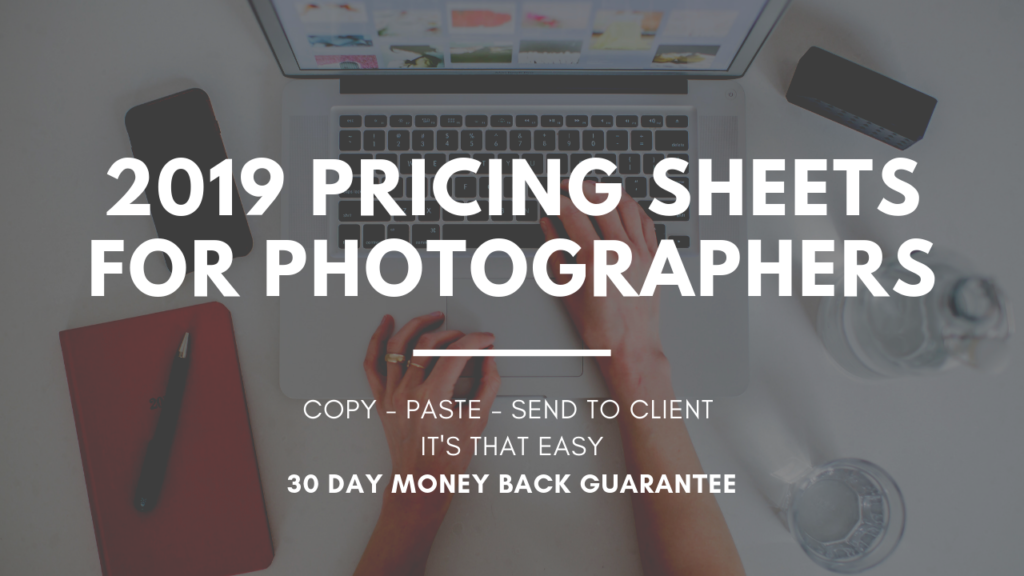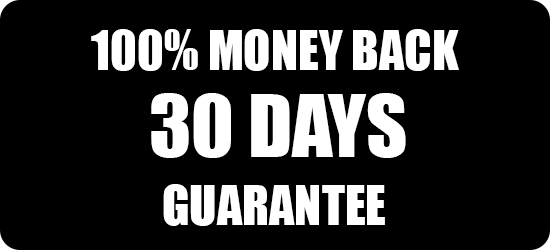What Should I Charge For My Photography
A Quick Guide on Making Sure You’re Charging Enough Money For Your Photography
Hey there, photographer! You know what question we get all the time? Of course you do — because you’ve probably asked it yourself at some point. “Exactly how much should I be charging for my photography services?” "I wonder if I should increase my photography prices?"
While the answer to that question seems pretty straightforward (the fair price for both parties!) it takes some effort to figure out what constitutes a fair price. Doing that means you have to factor in things like:
- your current level of experience
- the current demand for your business
- number of hours (and $$$) invested per shoot and editing
- your location + market value
- your business expenses
Let’s break all those categories down.
Your Current Level of Experience
The truth is that a photographer who’s less experienced — say, a hobbyist or an amateur — should be charging less than someone who’s a decade deep into the biz.
Consider it the “you have to spend money to make money” phase that any entrepreneur goes through. Restauranteurs, landscapers, hairstylists, doctors… anyone and everyone who goes into any business, including photographers, must start at the bottom and then work their way up.
This period of a photographer’s journey is truly invaluable, though. It gives you a chance to hone your skills, figure out what your style is, experiment with lower pressure, build a portfolio, and gather a loyal following of patrons.
As you build a portfolio and gain experience, you can being charging more money.
The Current Demand for Your Business
This generally goes hand-in-hand with your level of experience. The longer you shoot, the more of a following you have, and the more sessions you’ll book. A good rule of thumb is that if you aren’t selling many sessions at your current price, chances are you’re charging too much for your work and should lower your costs. Start by lowering them 15% to 20% and see how people react.
On the other hand, if you have to keep turning clients away because you’re always booked then you’re probably charging too little. Congratulations — it’s time for a pay raise! At the turn of a new month, new quarter, or new year (enough to give your loyal clients a heads up), we suggest raising your prices approximately 15% to 20%.
Number of Hours (and $$$) Invested Per Shoot
It’s easy to undervalue our time, especially as photographers where there’s so many moving pieces to consider. You’re emailing back and forth with clients, scouting locations, shooting, culling, editing, and communicating with clients afterward. Not to mention, you’ve spent money on expensive camera equipment (which will take time to recoup but shouldn’t be dismissed) along with props and business materials.
What we’re trying to say is that you aren’t just being paid for the 30-minute or 2-hour session. There’s so much more that goes into the job, and you should factor in everything. So, if your goal is to make $35/hour and you’ve booked a 2-hour session but spend 6 hours total doing everything else, you should be charging closer to $200 to $250/session — not $70. If your goal is to make closer to $75/hour, then you should be charging closer to $400/session.
In the beginning you may potentially lose money as you try to build a portfolio and gain clientele, but once you’ve established yourself as a professional photographer who’s consistently booking gigs (~four times per month or more) you can really focus on this category when tweaking your prices. As an intermediate or advanced photographer, you should never lose money on a session.
(BTW, our Tax Spreadsheets for Photographers are immensely helpful in figuring out if you’re making or losing money. Also, a way to increase your profit is to really focus on upselling, which is crucial in any business. Our Upsell Emails Made Easy for Photographers will help you do that painlessly).
Your Location + Market Value
Where you live affects how much you should be charging. This category considers both “cost of living” along with market value and pricing expectations in your city. You can’t charge NYC prices in small-town Ohio, for example. And if you live in San Francisco, you should be charging more than what photographers are charging in rural Idaho.
We recommend seeking out other photographers in your area to see how much they’re charging. An easy way to do this is via a quick Google search, but you may also have some luck in private Facebook groups for photographers (our BP4U Photogspiration group is a great place to start). We also recommend following the pricing guidelines in this project (obviously!).
Your Business Expenses:
This is something that is so important to keep track of in your photography business. First thing is first, you need to figure out the following:
What do I want to make this year?
Is that $50,000, $40,000, $25,000? There’s no wrong answer here! So do you have that number?
Write that number down. Below you'll find a video of where I go over how you should be pricing in 2019. Don't want to watch the video? I explain everything below the video! This is a tutorial video I use when talking about business goal planning within our Tax Spreadsheet product.
Now, you need to add up your expenses. If you’re not keeping track of this. STOP what you’re doing and buy our tax spreadsheets and input your expenses right away so you can really figure out what your business is costing you per month.
I’m talking about the month to month expenses like this…
Cost of Goods (prints, canvas, things you buy for your photography packages) internet expenses, phone bill, ink, paper, website fees, etc.
The things you use month to month to keep your business running. Ok, so what’s that number on average. Let’s say it’s $500. This could be way off but it’s just my example.
Now, let’s say you have $500 in expenses per month, take that times 12 months in a year and that’s $6000.
So right off the bat, if you want to bring in $50,000, you’re really going to have to bring in $56,000.
That’s not all. If you are going to have to upgrade your computer or camera equipment this year, you need to factor that in. So let’s say we have $5,000 a year in possible upgrades. The total is going up to $61,000.
THIS DOESN’T EVEN INCLUDE THE TAXES YOU’RE GOING TO HAVE TO PAY.
First thing you need to do is ask your tax accountant, if you were to bring in this much money, how much would you have to pay in taxes on that. He’s going to say, a lot of things are factored into this. But you tell him, the possible revenue and expense amount. Just tell him to give you worst case scenario. Why? So you can plug that number in. Because you want to be prepared at the end of the year!
Ok, so just in our example NOT including tax, we need to really bring in $61,000 to make $50,000 (net).
Let’s say you’re a wedding photographer and your average wedding package sold is $2000.
$61,000/$2,000 = 31 weddings a year
Remember, this doesn’t take into consideration your taxes. If you’re a wedding photographer your cost of doing business is going to be a lot higher especially, if you have to hire second shooters, assistant shooters, create wedding albums, etc.
Keep all of this in mind, when trying to figure out your pricing. You can use our guides and plug them into this formula to figure out if you’re making enough to hit your goals. Adjust accordingly.
Net Amount You want to Make + Expenses + Equipment Upgrades+ Taxes Owed = Revenue Needed
Revenue Needed divided by Your Price = How many of that session at that rate you would have to do that year.
Photography Pricing Sheets That Might Help!
All of this is to say we have our pricing guides that make an excellent starting point. They aren’t a black and white, “you must charge this amount” list of prices. Use them to get you going and then adjust the prices slightly, if necessary, to reflect a FAIR price based on all the above factors. Check out our Photographer Pricing Sheets.



